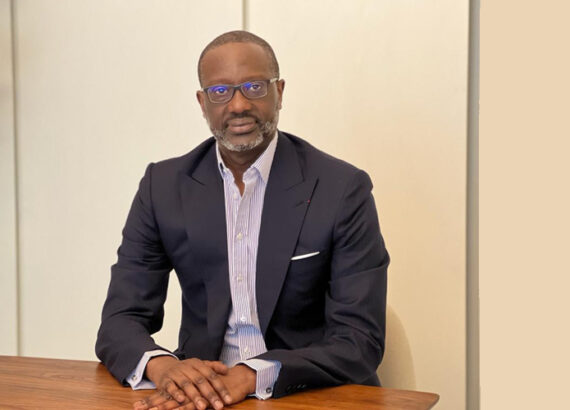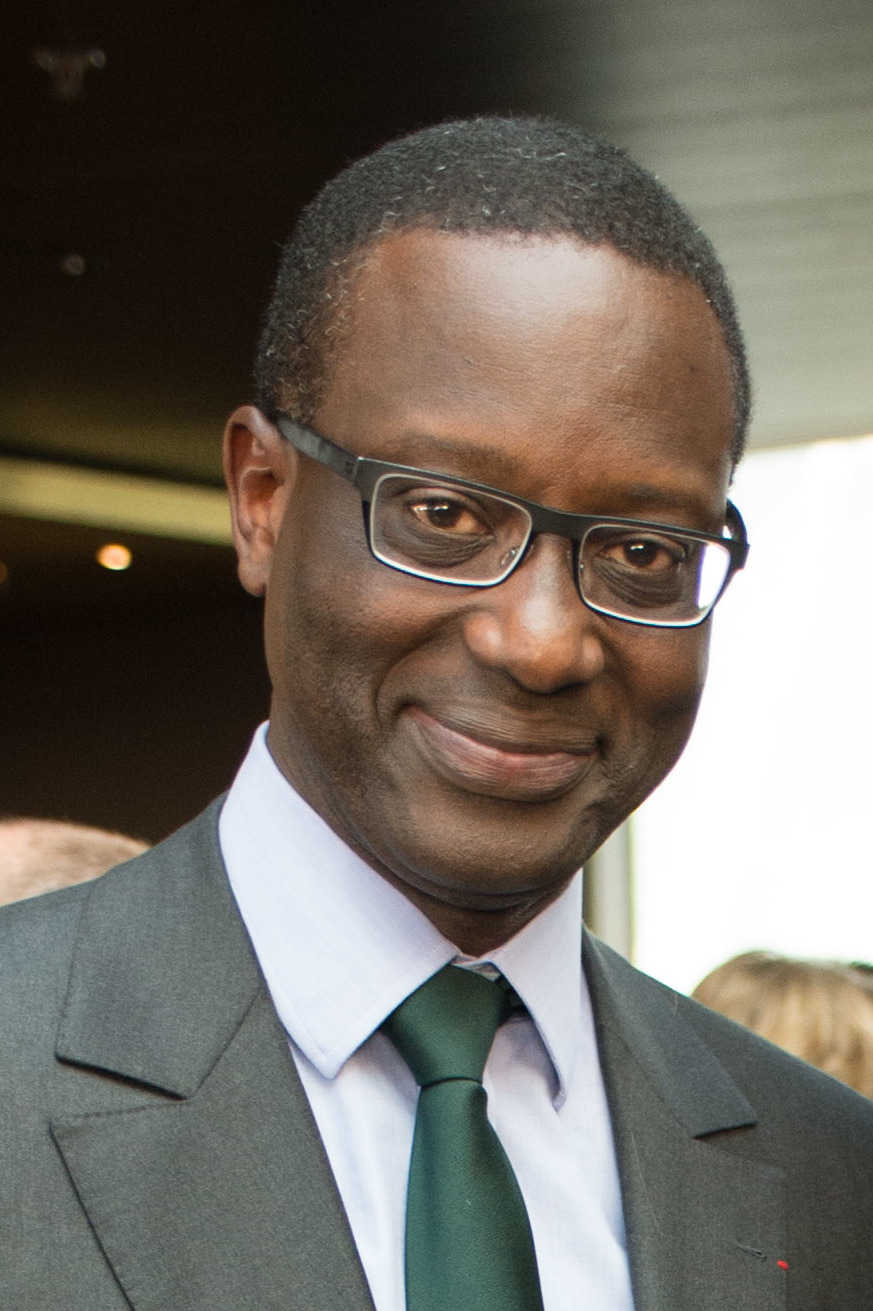
In the high-powered world of global finance, few executives have charted a path as distinctive and barrier-breaking as Tidjane Thiam. From his early days as a government minister in Ivory Coast to becoming the first Black CEO of a major European bank, Thiam’s career trajectory represents an extraordinary journey of resilience, strategic brilliance, and cross-cultural leadership.
Early Life and Education: Foundation for Excellence
Born in Côte d’Ivoire (Ivory Coast) in 1962 to a politically prominent family, Thiam’s early life was shaped by both privilege and political upheaval. His father, Amadou Thiam, served as a cabinet minister, while his cousin Konan Bédié would later become president of the country. This political lineage instilled in young Tidjane an early understanding of public service and leadership.
Showing exceptional academic promise, Thiam pursued his education in France, attending some of the nation’s most elite institutions. He graduated from the prestigious École Polytechnique in 1984, where he ranked top of his class, before earning engineering degrees from the École Nationale Supérieure des Mines de Paris. Later, he would further enhance his credentials with an MBA from INSEAD, consistently ranked among the world’s top business schools.
This educational background—combining rigorous technical training with business acumen—provided Thiam with a distinctive analytical approach that would become his hallmark throughout his career.
From Government Minister to Corporate Executive
Thiam’s professional journey began with the consulting firm McKinsey & Company, where he worked in Paris and New York. In 1994, at just 32 years of age, he made the dramatic decision to return to Ivory Coast when offered the position of CEO of the National Bureau for Technical Studies and Development (BNETD).
“I wanted to contribute to my country’s development,” Thiam has said of this decision. “It was a chance to put theory into practice.”
In 1998, President Henri Konan Bédié appointed Thiam as Minister of Planning and Development, making him one of the youngest government ministers in the country’s history. His rapid rise in public service seemed to portend a promising political career, but fate intervened dramatically with a military coup in December 1999.
Thiam found himself briefly imprisoned during the coup, an experience that would profoundly shape his perspective on risk and resilience. Upon his release, rather than attempting to navigate the volatile political landscape, he opted to return to the corporate world—a decision that would ultimately lead him to the highest echelons of global finance.
Rising Through Financial Services
Returning to Europe, Thiam rejoined McKinsey in Paris before being recruited to Aviva (then Norwich Union) in 2002. His performance at Aviva caught the attention of Prudential PLC, which appointed him as Chief Financial Officer in 2007—becoming the first Black executive director of a FTSE 100 company.
Just two years later, in 2009, Thiam was appointed CEO of Prudential, marking another historic first as the only Black CEO of a FTSE 100 company. His tenure at Prudential was marked by strategic vision and impressive results, with the company’s share price more than doubling during his leadership.
Under Thiam’s direction, Prudential pursued an ambitious growth strategy focused on Asia’s expanding middle class—a market many Western insurers had underestimated. This pivot proved prescient, with Asian operations becoming a primary driver of the company’s growth and profitability.
“We saw opportunity where others saw only challenges,” Thiam explained of his Asian focus. “The demographic trends were clear for anyone willing to look beyond short-term market fluctuations.”
Breaking New Ground at Credit Suisse
In 2015, Thiam was appointed CEO of Credit Suisse, becoming the first Black person to lead a major European bank. The appointment came at a critical juncture for the Swiss banking giant, which was struggling with profitability issues and strategic direction in the aftermath of the global financial crisis.
Thiam implemented a bold restructuring plan, shifting the bank’s focus away from volatile investment banking toward more stable wealth management operations. This strategic pivot was not without controversy, particularly among those who had built careers in the investment banking division, but Thiam remained steadfast in his vision.
“We needed to adapt to regulatory and market realities,” he stated. “The old model was no longer sustainable in a world of increased capital requirements and greater market uncertainty.”
His tenure at Credit Suisse delivered tangible results: the bank returned to profitability, reduced risk, and strengthened its capital position. However, Thiam’s time at Credit Suisse would also be marked by challenges that highlighted the complexities of being a pioneering leader.
Navigating Controversy and Cultural Challenges
In 2020, Thiam resigned from Credit Suisse following a corporate spying scandal that, while not directly implicating him personally, created significant reputational issues for the bank. The controversy involved surveillance of former executives, including wealth management head Iqbal Khan after he left to join competitor UBS.
Though investigations cleared Thiam of ordering or knowing about the surveillance, the incident raised questions about corporate culture under his leadership. Some observers noted that as the bank’s first Black CEO and a foreigner in the traditional Swiss banking world, Thiam faced unique scrutiny and challenges.
Financial Times journalist Patrick Jenkins wrote that Thiam had been “dealt a difficult hand” at Credit Suisse, noting that “as a black man in the white man’s world of Swiss banking, he was always going to be an outsider.”
Throughout his career, Thiam has spoken carefully but candidly about the role race has played in his professional journey, acknowledging both the barriers he has faced and his responsibility as a trailblazer.
“I’ve always believed performance speaks for itself,” Thiam has stated. “But I’m also aware that my success or failure carries implications beyond my individual career because of the doors it might open or close for others.”
Leadership Style and Business Philosophy
Colleagues and analysts describe Thiam’s leadership style as analytical, decisive, and transformation-focused. He combines the data-driven approach of his consulting background with strategic vision and cross-cultural fluency developed through his unique international experience.
Former colleagues note his exceptional memory for details, rigorous intellectual standards, and ability to simplify complex problems. His management style emphasizes clear accountability, meritocracy, and long-term value creation over short-term gains.
“He thinks like a shareholder because he approaches problems from first principles,” says one former executive who worked closely with Thiam. “He’s not bound by conventional thinking or industry traditions.”
Thiam has consistently advocated for a conservative approach to risk management in financial services, a perspective shaped partly by his experience during Ivory Coast’s political upheaval and the lessons of the 2008 financial crisis.
Beyond Banking: Current Endeavors and Influence
After departing Credit Suisse, Thiam’s career has continued to evolve in multiple directions. In 2020, Rwanda appointed him chairman of Rwanda Finance Limited, tasked with developing Kigali as an international financial center. This role connects his financial expertise with his longstanding interest in African economic development.
In April 2022, Thiam announced the creation of Freedom Acquisition Corp, a special purpose acquisition company (SPAC) focused on financial services, technology, and healthcare sectors, particularly in developed and emerging markets.
Most significantly, in February 2023, Thiam was elected president of the Olympic and Sports Committee of Côte d’Ivoire, representing a return to public service in his home country. This position leverages his organizational leadership experience while reconnecting him with Ivorian public life.
Beyond his formal roles, Thiam serves on various boards and advisory councils, including the Group of Thirty (G30), an influential international body of economists and financial leaders. He has also been outspoken on issues of economic development in Africa, climate finance, and diversity in business leadership.
Personal Qualities and Life Beyond Work
Those who know Thiam personally describe a man of wide-ranging interests and intellectual curiosity. Fluent in English, French, and German, he maintains connections across continents and cultures. Despite his high-profile career, he has generally maintained privacy regarding his personal life, though it is known that he has two sons from his previous marriage.
Colleagues note his disciplined work ethic, wry sense of humor, and passion for mentoring younger professionals. He is known to be an avid reader with interests spanning economics, history, and philosophy.
“What makes Tidjane exceptional is his ability to zoom out and see patterns across different industries and cultures, then zoom in on the specific actions needed,” remarks one former colleague. “That’s rare in any executive, but especially valuable in someone who has operated across such diverse contexts.”
Legacy and Impact
As Thiam continues to evolve his career, his legacy already stands as one of the most significant in modern business history. As the first Black CEO of major European financial institutions, he has broken ground for future generations of diverse executives.
His strategic reorientation of both Prudential and Credit Suisse demonstrated his ability to anticipate market trends and make difficult but necessary changes. His advocacy for financial inclusion and sustainable development in Africa represents a bridge between his early career in public service and his expertise in global finance.
Perhaps most importantly, Thiam’s career embodies a rare combination of intellectual brilliance, cultural adaptability, and personal resilience. From navigating political upheaval in Ivory Coast to transforming centuries-old financial institutions, he has demonstrated an extraordinary capacity to thrive across dramatically different environments.
“The world is more connected than ever, but still struggles with divisions based on geography, culture, and background,” Thiam observed in a recent interview. “Those who can build bridges across these divides will create the most value—whether in business, politics, or society more broadly.”
As global markets continue to evolve and the demand for diverse leadership perspectives grows, Tidjane Thiam’s pioneering journey provides both inspiration and a practical blueprint for navigating complex organizational and cultural landscapes. His story remains not just one of personal achievement but a testament to the value of bringing diverse perspectives to the highest levels of global business.






